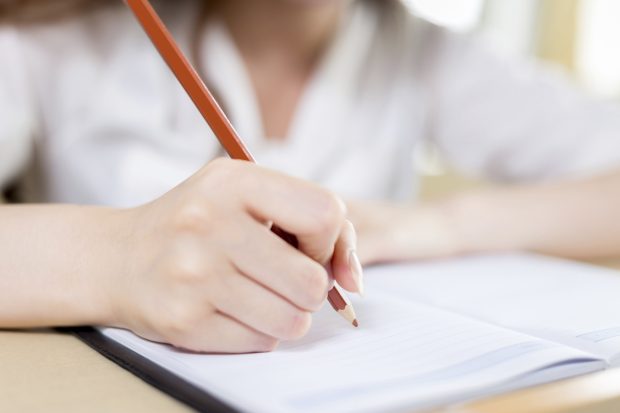
Today’s Education in the media blog looks at what the department is doing to help on teacher workload, children receiving school meals and mental health support to children and young people.
Teacher workload
Today, Friday 27 April, several papers have covered the story of a consultation that is being run at Ashby Fields Primary School in Daventry which is proposing to close at lunchtime on Fridays to allow teachers more spare time to work on curriculum content.
The piece has been covered by Daily Telegraph, Express, the Guardian, TES, The Sun, Metro, Daily Mail and BBC Online.
The Education Secretary has been clear that one of his main priorities is to work with teachers to make sure the sector remains an attractive one to work in, and to cut down on unnecessary workload.
That’s why at the ASCL (Association of School and College Leaders) conference this March, the Education Secretary announced that we will:
- enter a period of stability for assessment, qualifications and the curriculum, beyond those already announced.
- clarify the roles of actors within the accountability system.
- launch a high-level group of experts and teachers , which will look at the kind of data and evidence schools are collecting and look at what, and who, is driving that, and publish a set of actions by the end of the summer term.
A Department for Education spokesperson:
The Education Secretary has been clear that his priority is to work with teachers and make sure teaching remains the attractive and rewarding profession that it is.
We recognise the pressures that teachers can face, particularly regarding workload, and we are working with the profession, unions and Ofsted to strip away work that does not add value and keeps staff from doing what really matters.
We have also announced that there will be no changes to the curriculum or new tests for primary schools for the remainder of this parliament and across the country we know academies and free schools are using their freedoms, including the ability to set their curriculum and tailor their working day, to meet the needs of staff, students and parents.
School meals
Today, Friday 27 April, The Daily Mirror covered the story of Eastern Green Junior School in Coventry that says they will be forced to scrap the free school meals they currently offer to 7 to 11 year olds due to budget cuts.
Core school funding is rising to £43.5bn in 2020, and thanks to the extra £1.3bn in school funding announced last year, per pupil spending will be maintained in real terms over 2018-19 and 2019-20. Under the new national funding formula, by 2019-20, primary schools will receive a minimum of £3,500 per pupil and secondary schools will receive a minimum of £4,800.
Schools are required to provide meals to children in the following circumstances:
- Where parents request a meal and pay for it
- Where the child is eligible for benefits-related free school meals
- For all infant children (under universal free school meals)
A Department for Education spokesperson said:
There is more money going into schools than ever before and over the next two years every school will attract an increase in funding through our fairer formula. By 2020, core school funding will rise to a record £43.5 billion – the highest ever and 50% more per pupil in real terms than in 2000. In Coventry, schools will get £1.3m more next year under the new formula.
Schools are required to provide meals to all infant children and all pupils eligible for benefits-related free school meals. They receive specific funding from the Government to support this.
Mental Health
Today, 27 April, GL Assessment has released a report that suggests that one in five children could be at risk of mental health issues at some point later in life.
The Government has pledged a total of £1.7 billion to help promote, protect and improve children and young people’s mental health and wellbeing.
As part of this, the green paper on children and young people’s mental health which was announced last year announced new Mental Health Support Teams to increase the support available to pupils with emerging mental health problems. The new support teams will offer a range of interventions, and the aim is that they add to and work closely with what is already being provided in local areas such as school based counselling.
The report was covered by Sky News, the Independent, the Sun and the I.
A Government spokesperson said:
We want all young people to grow up feeling confident about themselves and able to get the right mental health support when they need it.
That is why we have allocated £300m to provide significant additional resources for early mental health intervention for all schools – primary and secondary - and committed to ensuring all children and young people learn about mental wellbeing.
To see the Education Secretary talk about working on teacher workload, click here.